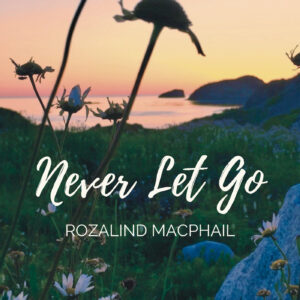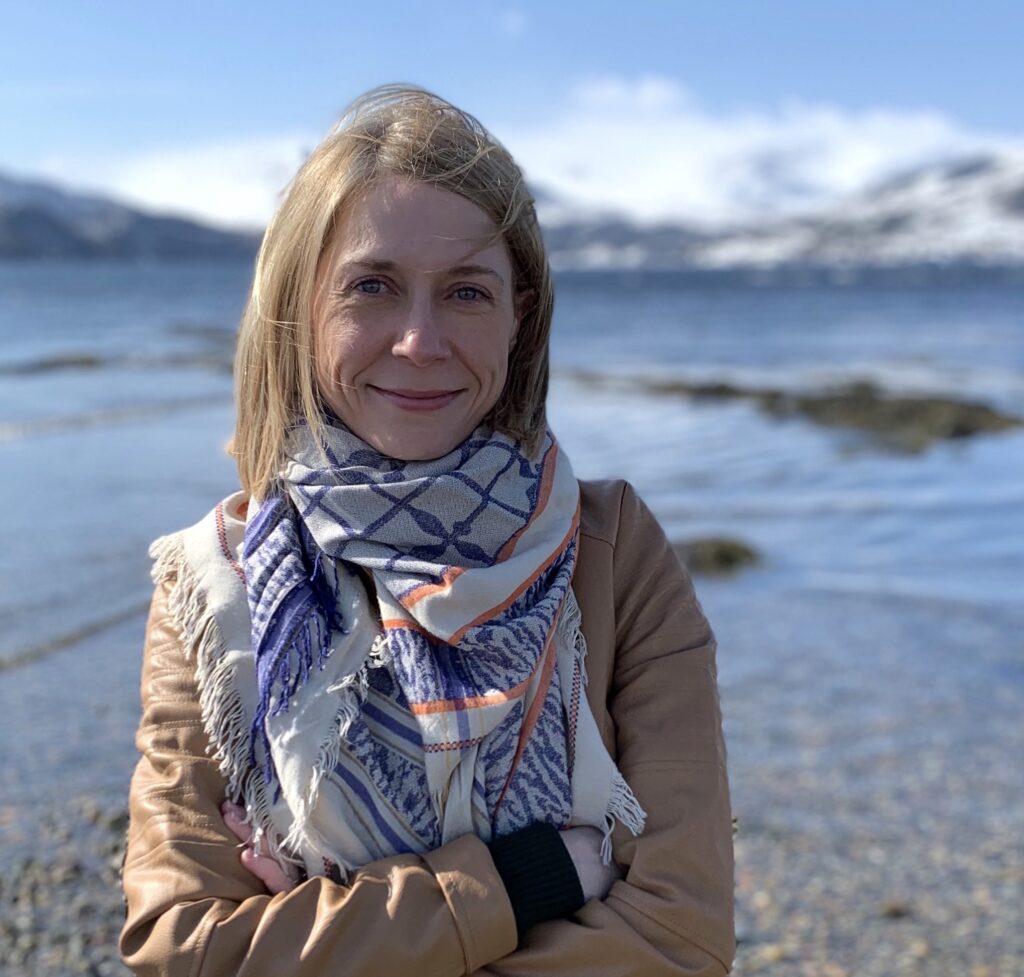Rozalind MacPhail: Performing has always flowed to me naturally
November 2021
How did you come to grow up on Toronto Island, and what was that like?
My father grew up on Toronto Island but had to resettle to the city when they tore down the homes there. He always wanted to move back to the island. I was about five years old when the opportunity came to purchase a place on Ward’s Island. It was nothing fancy but it was home. Most of my family still lives on the island and I always look forward to my visits there.
Although I chose a much bigger island to call home as an adult (Newfoundland), Toronto Island will always be such a huge part of why I became a working artist. The island inspires creativity. It was a special place to grow up where I could be fully present in nature and in the community. There are no cars and no stores. Only a ten-minute boat ride to the city and you’re in downtown Toronto!I have so many great memories during my childhood. Foraging wild strawberries, picking fiddleheads, skating on the lagoon, playing on the beach, and walking on the boardwalk. We had a wonderful music teacher at the Island Public School where I studied until Grade 8. It was such an inspiring experience to perform in those plays and a highlight for the island community each year. There happened to be a fantastic flutist who taught flute lessons just down the street from me. Creativity is a huge part of every islander’s life. Performing has always flowed to me naturally.
What brought you to St John’s, and what about the city led you to make it your home?
I had been touring as a solo looping artist for many years across Canada and was living out of my ’91 Buick Century wood-panelled station wagon when a dear friend of mine living in St John’s invited me to her wedding. The only way I could attend her special day was to book the last stop of my cross-Canada tour to take place in St John’s. By the time I arrived, I was looking for a place to call home. I was tired of living out of my car. After arriving in St John’s, I found a place to sublet on Victoria Street and have lived here ever since! There’s something truly special about the St John’s music scene. It’s inclusive, diverse, and rich in culture. Newfoundlanders embrace the arts. It’s in their blood to be creative. The Newfoundland and Labrador arts scene is one of Canada’s best kept secrets.
Can you tell us a little about your classical training in music – and why you chose the flute?
That’s an interesting story! When I was younger, I suffered from a bunch of respiratory issues which eventually turned into a diagnosis of asthma. I was hospitalized too many times to count. I had to carry an air pump to school during allergy season so that I could take masks at school. I was nicknamed Darth Vader because it was such a struggle for me to breathe. It was pretty horrible.
My Grandmother read an article in a Toronto newspaper about how playing wind instruments help asthmatics learn how to control their breathing. My parents were desperate to find anything that could help my breathing improve. There happened to be a really great flute teacher on the island who was a renowned performer. My parents signed me up for flute lessons and that was it, I was hooked. I now play all types of flutes – from the c flute to the piccolo, alto flute, and bass flute. I even play the bansuri, a bamboo flute from India.
I eventually moved from the world of classical flute to that of a songwriter and film composer, but it wasn’t an easy ride. A lifetime of career highs and lows. The flute has always been my main passion and my true voice. I love how the flute can be incorporated into any style of music. Good music is good music and the flute fits into all of it.
I built my musical foundation through studying classical music and I enjoy teaching classical flute to students of all ages to this day.
After I finished school on the island, I ended up attending Etobicoke School of the Arts, where I got excellent training in performance, music theory, music history, singing, acting, video editing, and playing in ensembles. From there, I studied at the University of Toronto. I was determined and dedicated. I used to practice six hours a day. I dreamed of becoming a soloist in front of the orchestra who would someday tour the world. Funny how our dreams often come true although in a different way than how we envisioned them. I’m a one-woman orchestra sharing my original music around the world through live music, inspiration, and film!

Did you always take a multi-disciplinary approach to your artwork, or did that emerge from different challenges and opportunities?
It took many years before I was live scoring and composing for film although I’ve always been passionate about film music. Lots of where I am today has to do with a whole lot of life experience and meeting great artists who always encouraged me to do my own thing.
The first hint of it was when I was living in Ottawa. I would take the Greyhound bus to Toronto to visit friends and loved the indie music scene that was happening through the Wavelength Music Series. I started playing flute with the Toronto band In Support of Living. They would always play their live shows with visuals. Everyone loved the look of it.
When I moved to Vancouver Island, I met a bunch of artists who had started a collective they called The Project. We would have these fantastic art parties where we would share our visual art, film, and live music. I met a brilliant experimental filmmaker named Scott Amos who encouraged me to try composing music for film. I had no idea what I was doing but he encouraged me to keep working on it. We ended up collaborating on a number of projects together over the years and to this day, Scott’s films are still some of my favourites. His creative work has had a huge influence on me.
After I moved to St John’s, I met Toronto film director Ingrid Veninger who encouraged me to experiment with my gifts further. She invited me to create a live music score for her feature film He Hated Pigeons. It was the first feature film I had ever worked on and it took me from St John’s to New York City, Oregon, and North Carolina I played effected flute loops and electronics to tell the story through original music and even screamed in one part of the score. It had a strong impact on audiences.
I’ve been fortunate to collaborate with a number of filmmakers I admire from across Canada, the US, and Europe. I tend to curate audio-visuals projects inspired by people, place, and the human experience. Most of these projects have been created from collaborative relationships I’ve developed with friends I’ve met during my travels.
During Covid-19, I’ve been taking these experiences further as I create a hybrid experience of live music, silent film, and inspirational speaking called Inspiration Soup. I’ve been performing keynote concerts at digital arts festivals and it’s been a huge hit!
I’m also working on a new audio-visual project inspired by the Twillingate region that I will eventually incorporate into the keynote concert experience. There are so many fascinating stories to share about the history and culture of Newfoundland and Labrador. I could spend a lifetime writing about this special place.
How does composing for film differ from other projects?
Composing and live scoring for film is my passion. There’s a dance that happens between live music and film that is hard to describe. You’ve got to experience it yourself to truly understand. It can stir up a lot of different emotions. Audience members are often telling me that it’s like they’re on an inspiring journey where they reflect about their own lives and feel moved to create their own work.
Rozalind MacPhail’s latest single is Never Let Me Go.
Photo credit: Josh Caine


